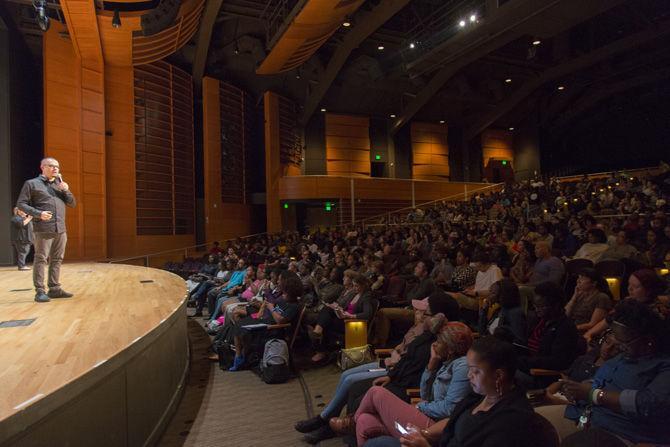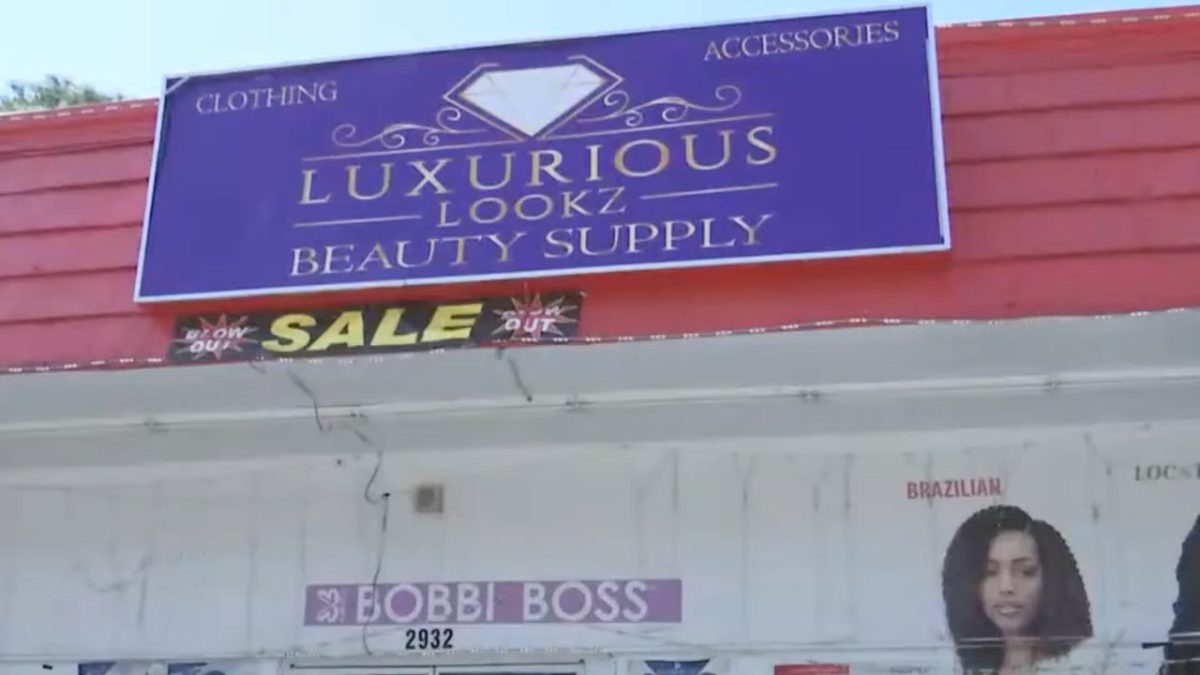Black Lives Matter and New York Daily News writer Shaun King challenged the packed house in the LSU Union Theater on Tuesday to spend the next four years fighting for change on the local level to make for a better nation in the future.
Students, faculty and community members gathered for King’s lecture, one of the many events held this week by the University in honor of civil rights activist Dr. Martin Luther King Jr.
Shaun King is known for his activism involving police brutality and justice. While he wasn’t always a justice writer, after seeing video of a man being choked to death by a police officer in July of 2014, it inspired him to begin speaking out publicly against police violence and advocating for the Black Lives Matter movement.
Looking at the audience, it was clear the University had chosen to be a movement and not a moment, said Wes Heath, assistant director of the Office of Multicultural Affairs.
As King began his speech, the audience sat silently as he reminded them President-elect Donald Trump’s inauguration is only a few days away.
“I don’t know if y’all watch horror movies, but the scariest part is not when you see the monster, it’s when you don’t know what’s in the dark room,” King said.
Looking at history, King said, the nation can foresee much of what will happen in the future. The premise of his speech was based on a key lesson King said helped him understand where the nation is right now.
King said humanity undergoes a “dip” after experiencing innovation – such as the first black president. He said his theory was built upon the thoughts of Leopold von Ranke, a historian and father of the study of history.
In the 1850s, Von Ranke created a timeline of human history to grasp a better understanding of the trends of humanity. He found that human beings wanted to believe that we were steadily getting better, but what he found was that people were confusing the steady improvement of technology with the steady improvement of humanity, King said.
Human beings can be amazing, cooperative and peaceful and there are pockets of peace throughout history, but there are times of decline as well, he said.
“We keep saying it feels like we’re in the sixties because it’s hard to understand a moment in history when we’re living in it,” King said.
His speech was supported with information slides of the “dip” theory and several videos of police brutality and social injustice.
He reminded the audience that the deadliest hate crime of the past 80 years against black people did not happen in the civil rights movement, but just two summers ago when Dylann Roof killed nine black Americans in a church in South Carolina.
“In everyday life we’re not thinking about the scheme of history, and I’m trying to impress on you that we’re in a deeply problematic point in the scheme of history,” King said.
The speech concluded with King asking every person in the room to help get the nation out of the beginning of the “dip.”
“Outrage and action have to be on the same level and I am not asking to take your outrage down, I am asking you to bring your action up,” he said as the audience gave him a standing ovation.






